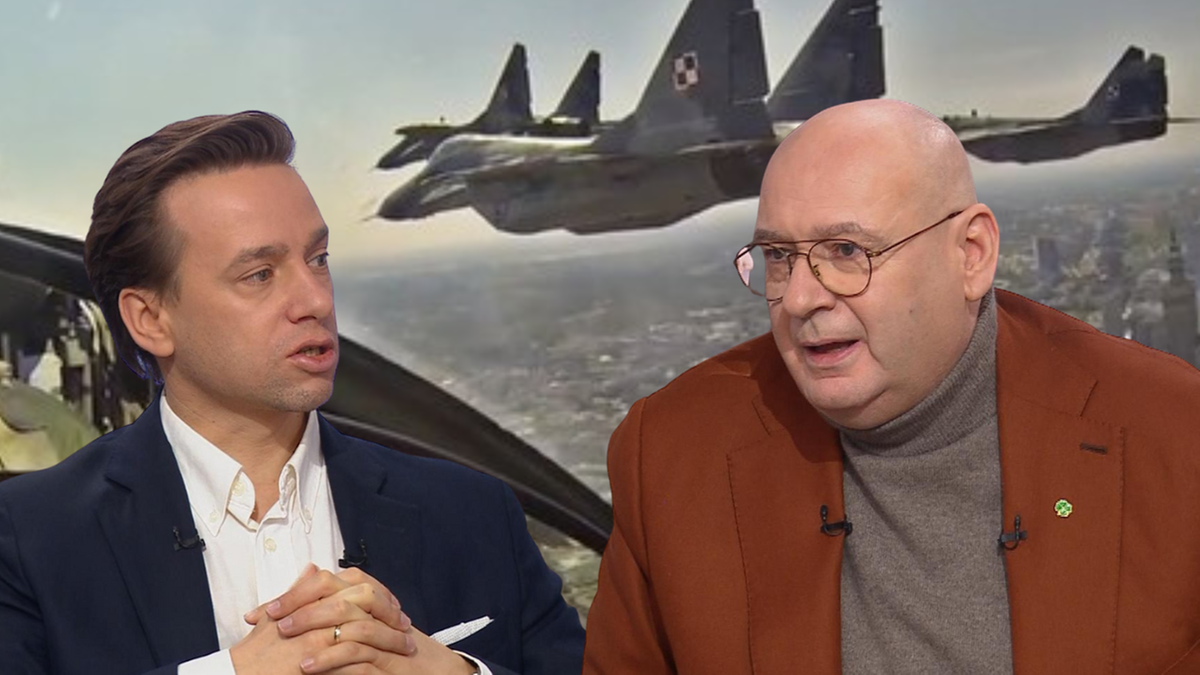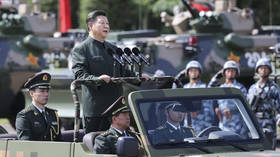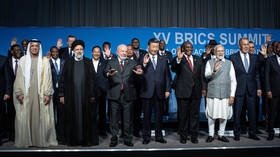Europe has been “tangled” into another trap—a war on Russian oil at sea. present it is already taking place in the Baltic Sea. Will it become Ukraine 2.0 – another area of Western conflict with Russia?
Two and a half years ago, I wrote how the West wanted to collect Russia's oil gross (Jęczniak: How to collect Russian oil profits? | Think Poland). At that time the Americans had been trying to turn Europe into an oil war with the world's largest exporter for months. present we are on the verge of a maritime blockade in the Baltic, due to the fact that an effort has been made to suffocate Russia, this time by taking its chance to usage maritime export routes.
The base for this conflict began to be built by the United States in October 2023. They introduced the first restrictions against tankers carrying Russian oil. In June 2024 the UK and the European Union joined. For a year, another Russian tankers were deprived of the ability to call ports, maintenance, insurance and financing commercial transactions. Currently, 342 tankers are subject to sanctions, although they are hard to scope at sea, as UNCLOS gives the right to decision freely both in the open sea and through territorial waters. However, no law regulates problems to the end. And it was in the Baltic that specified a "sea falancing of law" began. By coercion.
The Baltic is simply a key place for Russian oil exports – 60% of them pass through this water. And after Sweden and Finland enter the Alliance, it is the interior sea of NATO. That's why it's easy to block. If we look at the map, we can see that Russia's key export ports are located at the end of the narrow Gulf of Finland, and are "closed" on both sides by the hostile NATO states of Russia. However, even after sailing across the Baltic Sea on the way to the world's ocean, Russian tankers are waiting for another “tight throat” of the world's shipping, or Danish Strait.
Initially, the blockade of Russian tankers was attempted to screw Denmark. A year ago, by the Ministry of abroad Affairs officially announced that it was "considering" limiting their passage through the Danish Straits. However, the Danish did not decide for specified an open conflict. So the bravest (but besides the smallest) members of the Alliance decided to rub the Russian bear for oil ears. Estonia has entered the function of kamikaze. This large country, with a powerful army, a fleet of oceanic even sizes, first passed that it could sink abroad merchant ships in its own waters. In April, Estonia's naval forces forced the Kiwala tanker, which was subject to EU sanctions, to change course, justifying the suspicion that there was no insurance and registration. However, it ended up uncovering insignificant method faults that had been repaired and the ship had to be released.
In May, an Estonian patrol unit, supported by a chopper and a fighter aircraft, attempted to halt the M/T Jaguar tanker in the Baltic, under the Gabon flag, flowing for Russian oil to Primorsk. However, the effort to halt the ship failed, Russian aviation entered the action and Su-35 appeared above the site of the event, the Estonians gave up, only Portuguese F-16 picked up the flight, and the planet was informed that Russian fighters had breached Estonia's airspace, as added “for a minute”.
After this second failed effort to establish an oil blockade, Russia responded symmetrically. 4 days later, Russian Coast defender stopped the Green Admire oil tanker, leaving the port of Sillamäe in Estonia. He transported shale oil mined in Estonia to Rotterdam. The ship was in Russian territorial waters on the basis of the Estonian-Russian-Finnish agreement, allowing it to bypass the shallows. It was a signal that repercussions could be unpleasant. The next day, the tanker was fired. An additional answer is the Russian Navy's convoy of tankers by the waters on which they could be hooked.
The problem is that the maritime blockade, even hidden under the slogan of the Baltic "filtration" from Russian tankers, is simply a tool of commercial conflict, can be treated as a casus belli. And possibly the point is, in addition to suffocating Russia's oil revenues, to open the second post-Ukraine front of the armed conflict. This time under cover of concern for the environment and clean seas and beaches. We walk on a thin line, separating peace from war.
Andrzej Szczęsniak
Think Poland, No. 23-24 (8-15.06.2025)













